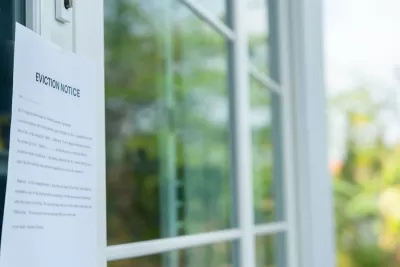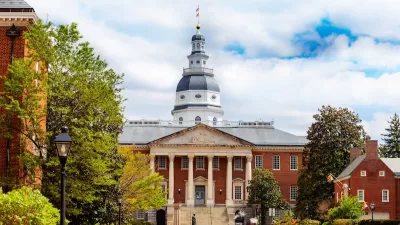Ordinances that allow landlords to evict tenants for nuisance complaints or alleged criminal activity may run afoul of federal protections, the DOJ warns.

The United States Department of Justice is warning cities that ordinances that allow landlords to evict tenants for ‘nuisance’ complaints may be federally illegal, reports Gabriel Hathaway in the Winona Post. “These ordinances can lead to renters being evicted due to minor nuisance violations and other offenses,” Hathaway explains.
“While ‘crime-free’ or ‘nuisance’ rental housing programs have different features, the DOJ letter notes they may encourage or require landlords to evict or punish tenants for alleged criminal activity, reject housing applicants because of a criminal history or past calls for emergency or law enforcement assistance, or designate medical or disability-related calls for service as a ‘nuisance,’ among other things.” According to the DOJ, “These features of ‘crime-free’ or ‘nuisance’ programs may violate federal statutes such as The Fair Housing Act (FHA), title VI of the Civil Rights Act of 1964, The Americans with Disabilities Act (ADA), and The Violence Against Women Act.”
In a letter, DOJ Civil Rights Division Assistant Attorney General Kristen Clarke wrote, “The [DOJ] is charged with promoting fair access to housing and vigorously enforces federal laws aimed at achieving that goal. We encourage law enforcement agencies and local governments to assess their programs referred to as ‘crime”-free’ or ‘nuisance’ programs to determine whether they comply with the federal statutes discussed in this letter.”
FULL STORY: Feds: City rules evicting tenants over nuisances may be illegal

Study: Maui’s Plan to Convert Vacation Rentals to Long-Term Housing Could Cause Nearly $1 Billion Economic Loss
The plan would reduce visitor accommodation by 25,% resulting in 1,900 jobs lost.

North Texas Transit Leaders Tout Benefits of TOD for Growing Region
At a summit focused on transit-oriented development, policymakers discussed how North Texas’ expanded light rail system can serve as a tool for economic growth.

Why Should We Subsidize Public Transportation?
Many public transit agencies face financial stress due to rising costs, declining fare revenue, and declining subsidies. Transit advocates must provide a strong business case for increasing public transit funding.

How to Make US Trains Faster
Changes to boarding platforms and a switch to electric trains could improve U.S. passenger rail service without the added cost of high-speed rail.

Columbia’s Revitalized ‘Loop’ Is a Hub for Local Entrepreneurs
A focus on small businesses is helping a commercial corridor in Columbia, Missouri thrive.

Invasive Insect Threatens Minnesota’s Ash Forests
The Emerald Ash Borer is a rapidly spreading invasive pest threatening Minnesota’s ash trees, and homeowners are encouraged to plant diverse replacement species, avoid moving ash firewood, and monitor for signs of infestation.
Urban Design for Planners 1: Software Tools
This six-course series explores essential urban design concepts using open source software and equips planners with the tools they need to participate fully in the urban design process.
Planning for Universal Design
Learn the tools for implementing Universal Design in planning regulations.
City of Santa Clarita
Ascent Environmental
Institute for Housing and Urban Development Studies (IHS)
City of Grandview
Harvard GSD Executive Education
Toledo-Lucas County Plan Commissions
Salt Lake City
NYU Wagner Graduate School of Public Service





























